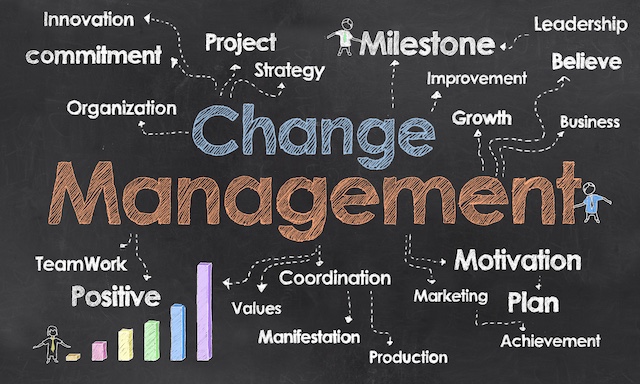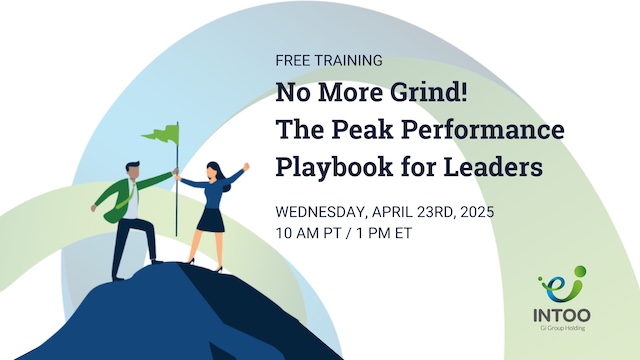The workplace is constantly shifting, and the need to adapt has never been greater.
A career journey can span multiple positions within a single organization or with several employers, across industries. Each time an individual makes a career transition, their existing skills can help them flourish—and they may not even be aware of the skills they possess that give them an advantage.
These transferable skills are ones that can be applied to many different roles and responsibilities. Knowing how to apply these skills, or communicate them to potential employers, is vital to career agility and adaptability.
What are transferable skills?
Transferable skills are the building blocks of career mobility. These are measurable skills that stay relevant no matter the role or business. Whether shifting industries or growing with a company, they help an individual transition smoothly and make an impact.
Why Is It Important to Have Transferable Skills in 2025?
Transferable skills create a win-win situation for both employees and organizations. Companies seek employees who can adapt, collaborate across teams, and take on new responsibilities without missing a beat.
For employees, transferable skills mean more career opportunities. Instead of being stuck in one position, they can grow into new roles, take on diverse projects, and expand their expertise—all without starting over. Employers recognize this adaptability as a major asset, so it can lead to greater mobility within an organization. The more skills a professional brings to the table, the more indispensable they are.
Transferable skills are also incredibly valuable for individuals who lose their jobs because they can open doors to new roles and industries, making career transitions smoother and less stressful. When someone is unexpectedly unemployed, the ability to leverage skills such as communication, problem-solving, and adaptability can significantly expand their job prospects.
Many employers value these core competencies as much as, if not more than, technical expertise because they demonstrate a candidate’s ability to learn, collaborate, and contribute effectively in different work environments. For example, a project manager who loses their job may find opportunities in operations, business development, or even strategy roles because their experience in leadership, organization, and problem-solving is applicable across multiple fields. Similarly, someone with strong analytical skills from a data entry or administrative role might transition into business analysis or marketing analytics. The flexibility that comes with a diverse skill set allows individuals to pivot in their careers without starting from scratch, making job loss less of a dead end and more of a new beginning.
For businesses, a workforce with strong transferable skills leads to better collaboration, increased efficiency, and a more agile team that can pivot when needed, whether for new projects or services, to cover for absent colleagues, or when a company undergoes a reorganization or a reduction in force. Employees who understand cross-department functions can work smarter, innovate faster, and drive company success.
In a world where job roles and industries constantly shift, mastering transferable skills isn’t just an advantage—it’s necessary for long-term career growth and business resilience.
16 Valuable Transferable Skills to Have in the Workplace
Mastering transferable skills ensures an individual can excel in any role, navigate career changes, and meet evolving workplace demands. Let’s look at 16 valuable skills one can develop:
1. Problem-solving
Challenges will inevitably arise at work, and a professional’s ability to assess and resolve them efficiently is a valuable asset. Problem-solving requires critical thinking, adaptability, and a proactive approach.
Example: A logistics coordinator who identifies a faster shipping route can reduce delivery delays and improve customer satisfaction.
Employers value this skill because it enhances productivity and keeps operations running smoothly.
2. Languages
Speaking a second or third language is a powerful transferable skill that can open doors across industries, from customer service to international business. It lets an employee connect with diverse teams and clients in an increasingly global workplace.
Example: A bilingual customer support agent can quickly resolve issues for non-English-speaking customers, improving satisfaction and retention.
Highlighting this skill on a resume shows adaptability and a readiness to thrive in multicultural environments.
3. Writing
Writing skills are essential in almost every profession, whether for internal communication, client interactions, or content creation. Strong writing conveys clarity, professionalism, and credibility.
Example: A well-crafted email to a client can strengthen relationships and improve collaboration.
This skill is valuable because clear communication reduces misunderstandings and increases efficiency.
4. Research
Like problem-solving, strong research skills help with making informed decisions and developing effective strategies. Whether analyzing market trends or gathering insights for a project, the ability to find, evaluate, and apply information is invaluable.
Example: A financial analyst researching industry benchmarks can provide data-driven recommendations that optimize company investments.
Hiring managers appreciate this skill because it demonstrates curiosity, attention to detail, and strategic thinking.

5. Data management
No matter the industry, Excel or data management proficiency can significantly boost efficiency. From financial modeling to scheduling, spreadsheets are crucial for organizing and analyzing information.
Example: A sales manager who uses Excel to track performance metrics can identify trends and optimize team strategies to achieve better results.
This skill is important to employers because it enhances data-driven decision-making and streamlines operations.
6. Adaptability
Workplaces constantly evolve, and the ability to adjust to new challenges, technologies, or workflows makes an individual a strong candidate in any industry. Adaptability shows resilience, flexibility, and a willingness to learn.
Example: A marketing specialist who quickly learns a new digital analytics tool can improve campaign tracking and optimize ad spend.
Employers desire this skill because it ensures smooth transitions and long-term success in a changing work environment.
7. Collaboration
Teamwork is crucial to any workplace, and an employee’s ability to collaborate effectively with colleagues, clients, and stakeholders drives productivity and innovation. Strong collaboration fosters trust, communication, and a shared sense of purpose.
Example: A project manager who facilitates open discussions among departments ensures alignment and a smoother workflow.
This skill attracts those hiring because it leads to more efficient problem-solving and stronger team dynamics.
8. Creative thinking
Thinking outside the box allows for finding unique solutions, improving processes, and developing innovative ideas. Whether brainstorming new strategies or refining existing ones, creative thinking helps businesses stay ahead in competitive markets.
Example: A marketing strategist who reimagines a brand’s social media approach based on emerging trends can increase engagement and attract new customers.
Employers look for this skill because it drives innovation, enhances problem-solving, and keeps organizations adaptable to change.
9. Organization
Being well-organized helps with managing tasks, prioritizing responsibilities, and maintaining efficiency in fast-paced work environments. Strong organizational skills ensure projects stay on track and deadlines are met.
Example: An event coordinator who creates a detailed checklist and timeline ensures a seamless experience for both clients and vendors.
This skill is desirable to hiring managers because it reduces errors, improves productivity, and enhances overall workflow.
10. Management
Effective management involves planning, coordinating, and overseeing tasks to ensure smooth operations. It requires decision-making, multitasking, and delegating responsibilities to optimize team performance.
Example: A call center manager who schedules employees based on peak hours ensures customer needs are met while maintaining cost efficiency.
This skill is beneficial because it keeps teams aligned, motivated, and working toward shared goals.
11. Leadership
Great leadership inspires, guides, and supports others to achieve their best work. It involves communication, problem-solving, and fostering a positive team culture.
Example: A sales director who mentors junior employees and encourages collaboration can boost morale and drive higher revenue.
Employers need strong leadership because it cultivates healthy teams and contributes to long-term success.
12. Attention to detail
Being detail-oriented ensures accuracy, consistency, and quality in work. Whether reviewing reports, managing data, or handling customer interactions, a keen eye for detail helps prevent mistakes and improve efficiency.
Example: An accountant who meticulously reviews financial statements can identify discrepancies before they become costly errors.
This skill is vital for minimizing risks, enhancing reliability, and contributing to operational success.
13. Emotional intelligence
Accurately understanding emotions—both one’s own and those of others—enhances communication, collaboration, and decision-making. This skill helps an employee navigate workplace dynamics, build strong relationships, and foster a positive work environment.
Example: A manager who recognizes an employee’s frustration and provides support can boost morale and improve productivity.
This skill is desired by hiring managers because it strengthens teamwork, reduces conflicts, and promotes a more engaged workforce.
14. Conflict management
Effectively handling disagreements and resolving disputes helps maintain a productive and positive workplace. Strong conflict management skills involve active listening, problem-solving, and finding mutually beneficial solutions.
Example: A project manager mediating a disagreement between team members ensures smooth collaboration and that deadlines are met.
Employers want this skill because it fosters teamwork, minimizes disruptions, and strengthens workplace relationships.
15. Initiative
Taking initiative means being proactive, seizing opportunities, and solving problems without waiting for direction. It demonstrates leadership, resourcefulness, and a strong work ethic.
Example: An employee who identifies a process inefficiency and implements a solution without being asked can save the company time and resources.
This skill is important to employers because it drives innovation, enhances productivity, and shows a commitment to continuous improvement.
16. Computer and technical skills
Proficiency with technology, from basic software to advanced coding, is essential in today’s digital workplace. Strong technical skills enhance efficiency, streamline processes, and improve problem-solving capabilities.
Example: A data analyst who uses software to automate reports can save hours of manual work and improve accuracy.
This skill stands out to hiring managers because it increases productivity, reduces errors, and keeps businesses competitive in a tech-driven world.
Conclusion
The modern workplace is more dynamic than ever, requiring team members to handle multiple responsibilities and adapt to new challenges. Whether managing projects, resolving conflicts, or learning new technologies, having transferable skills ensures an employee can confidently meet these expectations.
Employers seek professionals who bring more than the expertise that’s specific to the vacant role—they want individuals who can think on their feet, communicate effectively, and lead when needed. Transferable skills help candidates find new work more easily.
Having personalized guidance to help identify and communicate these skills to potential employers can boost a job seeker’s chance of success. INTOO Outplacement offers unlimited hours of career coaching seven days a week to help impacted employees do just that in their resumes, LinkedIn profiles, cover letters, and more. Contact us today to learn more.











